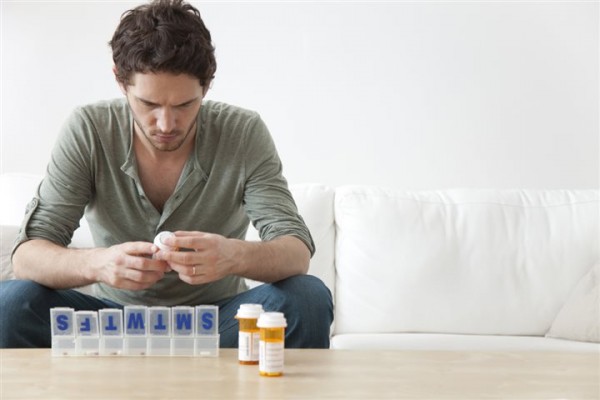 (BPT) – If you’ve ever taken them, you know prescription opioids can provide a clinically safe and effective solution to pain management. They can also be very addictive, however, and protecting against addiction requires vigilance on the part of the patient as well as his or her doctors, nurses, caregivers, pharmacists and benefits providers.
(BPT) – If you’ve ever taken them, you know prescription opioids can provide a clinically safe and effective solution to pain management. They can also be very addictive, however, and protecting against addiction requires vigilance on the part of the patient as well as his or her doctors, nurses, caregivers, pharmacists and benefits providers.
A Nation in Pain, Express Script’s comprehensive report on pain-medication usage in the United States, shows that while the number of Americans using prescription drugs like codeine, hydrocodone or OxyContin has declined, the use of potentially dangerous high doses and medication combinations, and other risky usage patterns are all on the rise.
If you believe someone you love is abusing pain medication, it’s important that you act immediately. Addiction to prescription opioids can be fatal. In fact, death from prescription drug overdoses is more common than cases of cocaine or heroin-related deaths combined.
If you or a loved one uses prescription pain medications, be aware of these signs that could indicate a dependence on or an addiction to the medication.
Suspicious behavior
This can include a wide array of options, such as:
* Seeking or obtaining prescriptions from multiple prescribers and filling at multiple pharmacies, especially ones that are not in close physical proximity.
* Using pain medications to “feel good” rather than to treat discomfort
* Frequent claims that the pharmacy didn’t provide enough medication or that medications have been lost
* Avoiding doctor appointments because the office counts pills or performs urine drug screens
Mood changes
A prescription drug addiction can drastically alter the user’s mood. Look for the following warning signs in yourself or your loved one:
* Bouts of anger or depression
* Increased alcohol use or abuse
* Feelings of anxiety
* Displays of aggressive behavior toward the doctor, pharmacy or caregivers related to opioid medications
Increased medication use
One of the most conclusive ways to determine if you or someone you love is addicted to opioids is to look for abnormalities in the medication’s use. These abnormalities could include:
* Taking more pills or taking medicine more frequently than prescribed
* Seeking early refills of opioid medication
* Using opioids with other high-risk medications, like muscle relaxants and anti-anxiety medications that increase euphoria
* Use of additional medication to treat severe side effects (such as stimulants to combat drowsiness, sedatives to regulate sleep patterns, etc.).
* Experiencing withdrawal symptoms, such as nausea, diarrhea, muscle pain, sweating and agitation. These are all signs of a body’s dependence on prescription opioids.
Where can you get help?
If you identify with any of these signs or symptoms or you recognize them in a loved one, notify the prescribing physician immediately. The doctor can alter the pain therapy to a less addictive option or begin to safely withdraw the patient from the medication. Patients should not try to abruptly discontinue any medication without a physician’s supervision.
There are many resources for parents and caregivers concerned with opiate dependence/addiction. The patient’s physician can refer counseling services and addiction treatment as needed. Support groups, such as Narcotics Anonymous, offer counseling and other services for patients dealing with addiction to pain medications. In addition, many employers offer free, confidential assistance programs to help employees, or their dependents, who are trying to overcome an addiction or other personal concerns.
The one thing you can’t afford to do is wait. Addiction to pain medication is an illness, not a crime, and your immediate intervention could save a life.

